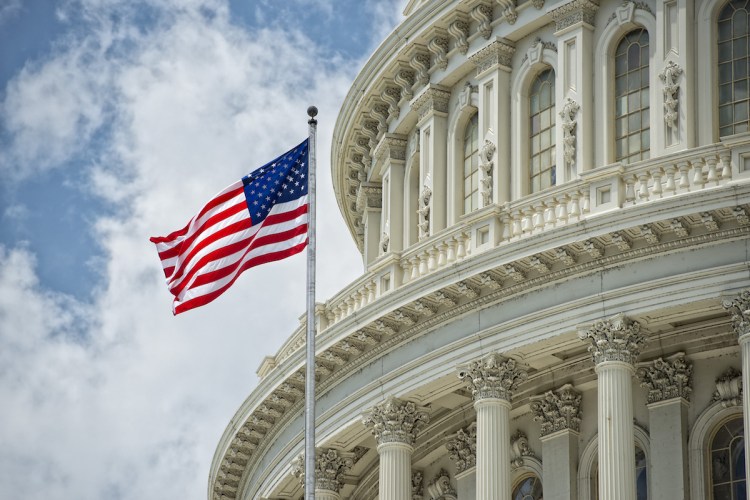Contrary to popular belief, government bureaucrats aren’t trying to thwart entrepreneurs at every turn. In my experience, the opposite has been true. The state and local government officials I meet with in my role as a vice president for an economic development organization in St. Charles, Missouri, increasingly see startups as important to the future of their economy. They understand that encouraging entrepreneurship is key to maintaining a strong employer base.
However, there are a few things that state and local governments can do better to support 21st century startups.
Embrace the scope of economic changes
We’ve only just begun to see the impact Amazon will have on local retail. If your employment or tax base depends on storefronts, you need to come up with an alternative funding model, and you need to do it quickly.
Similarly, if your community depends on manufacturing and the local plant either closed or is about to close, you need to face reality. Like Bruce Springsteen said more than 30 years ago in his song “My Hometown,” “Those jobs are going, boys, and they ain’t coming back.”
June 5th: The AI Audit in NYC
Join us next week in NYC to engage with top executive leaders, delving into strategies for auditing AI models to ensure fairness, optimal performance, and ethical compliance across diverse organizations. Secure your attendance for this exclusive invite-only event.
And if that job did come back, it’s increasingly likely that it would be filled by a robot.
Making stuff and selling stuff in a store has been a fundamental part of the modern economy since there was a modern economy. It’s scary to think of turning to a bunch of coders and programmers to fill a significant part of the revenue and employment gaps created by shrinking or disappearing retailers and manufacturers.
But you have to fully embrace the scope (and scariness) of a problem before you can solve it.
Enact startup-friendly public policy, not just tax cuts
I have been a part of the St. Louis regional startup community for three years. I have never — not even once — heard tax rates mentioned as a barrier to a startup’s success. However, I have heard founders mention a lack of seed money. Repeatedly.
Local, state, and federal government should at least discuss how the public sector could fill that early-funding gap. In some states (including Colorado and Pennsylvania), governments have already implemented innovative programs that at least partially address the lack of early-stage capital.
That said, there are instances where specific tax cuts and credits can help set the foundation for success.
“Creating our local startup ecosystem wouldn’t have been possible without historic tax credits,” said Randy Schilling, founder and owner of the OPO Innovation District in St. Charles, Missouri. The centerpiece of the OPO Innovation District is OPO Startups, an incubator located in a renovated post office.(Disclosure: My wife is the director of OPO Startups.) The cost of the renovation was partially offset by Missouri’s historic preservation tax credit.
The Missouri historic preservation tax credit was also essential to the creation of St. Louis-based Cortex, one of the heartland’s largest innovation districts. Despite the success of Cortex and OPO, however, Missouri is now considering drastically scaling back or eliminating the tax credit.
As an entrepreneur I can say, without hesitation, that my startup community played a huge role in my success. My first, biggest, and highest-profile consulting clients were all a part of the incubator I belonged to. That incubator would have never been built without the historic preservation tax credit.
Local and state politicians have nothing but love for startups, tech entrepreneurs, and innovation districts.
But love isn’t enough.
Startup ecosystems need a public sector willing to back up their words with action.
Start a dialogue between local government and startups
The startup world is a subculture with a unique language and set of norms. That subculture can be hard for outsiders to understand. The same is true of government. Bridging two distinct cultures requires dialogue.
In my community, I am a member of our local innovation committee. That committee includes entrepreneurs, economic developers, city and county government officials, and staff from our local incubator. Together we’re planning a “Startup Legislative Day,” where we hope to help legislators and their staff understand the barriers facing startups and our local entrepreneurial ecosystem.
No one likes more meetings, and sitting around talking might be the worst way most entrepreneurs could imagine spending two hours. But the problems facing Heartland entrepreneurs and ecosystems will only be solved through collaboration. You can call it whatever you like, but I would encourage any innovation community to have a similar public/private committee or working group focusing on small, achievable goals.
For example, having a vision of turning Omaha into Silicon Valley is the type of unrealistic goal that makes committees like these seem like a waste of time. However, starting with a goal to help local and state government in Nebraska understand the barriers facing startups is achievable, and achieving one small goal inspires the group to continue working toward a bigger vision.
Entrepreneurship and startups aren’t a fad. Industries are disappearing, the nature of work is changing, and in many communities the model for how we fund local government is unraveling. Startups won’t solve all solve all those problems, but they are an important part of the solution.
And in 2018, local and state governments need to take a strategic approach to helping startups and entrepreneurial ecosystems succeed.
Dustin McKissen is an economic development executive in the greater St. Louis area, a LinkedIn Top Voice on Management and Culture, a CNBC contributor, and an Inc. columnist.

